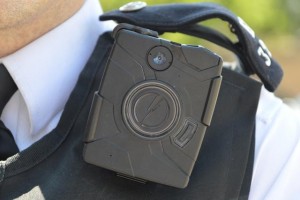 In light of many recent events, many people are calling for law enforcement officers to be required to turn their body cams on and leave them on while they are on duty. Those calling for this believe it to be an excellent way to detect incidences of misconduct or corruption and in many cases to deter them. However, the majority of law enforcement departments and officers believe, this idea to be significantly flawed.
In light of many recent events, many people are calling for law enforcement officers to be required to turn their body cams on and leave them on while they are on duty. Those calling for this believe it to be an excellent way to detect incidences of misconduct or corruption and in many cases to deter them. However, the majority of law enforcement departments and officers believe, this idea to be significantly flawed.
There are a number of reasons why including:
- If the camera cannot be turned off, then it is quite capable of capturing private conversations of anyone within earshot.
- If the camera cannot be turned off, it will capture video footage of citizens going about their daily lives.
- If the camera cannot be turned off, it will capture private conversations with citizens who wish to tell LEOs where criminals are located in their area.
- If the camera cannot be turned off, it can also capture sensitive conversations between officers regarding tactics being used to capture criminals
- If the camera cannot be turned off, it may capture privileged conversations between attorneys and their clients.
- If the camera cannot be turned off, it could capture images of victims, child crime victims, or images of citizens caught in compromising or undignified positions.
- If the camera cannot be turned off, it could capture images of things like the officer going to the bathroom, talking to their loved ones on cell phones, even eating lunch.
When you look at all the images or audio recordings that could inadvertently be captured in an officer’s body cam cannot be turned off, it truly brings into question the intelligence of leaving them on all the time. Chances are pretty good that those who are loudly calling for body cams to be on at all times while an officer is on duty, obviously haven’t given much thought what they might capture incidentally.
Having an LEOs body cam on the entire time he or she is on duty could potentially compromise the privacy of the average citizen. At the same time, it is sure to compromise the privacy of the officer who can’t even turn his cam off so that he can go to the bathroom without it being filmed.
A Legitimate Concern
With all the concern over privacy, we still have to look at the distinct possibility that an officer might be tempted to turn his cam off while he is engaged in some form of nefarious activity such as misconduct. There is also the possibility of the camera being turned off and not capturing important footage that could be used to prove an officer or citizen’s guilt or innocence.
To date, the majority of police departments do not require their officers to leave their body cams on full time. Their use is still voluntary, at least until the Federal Government makes a final decision as to when they can be used or if they can, in fact, be left on without violating current privacy laws. In the meantime, they are definitely making a big difference in conviction rates and the number of officers being improperly accused and found innocent.
